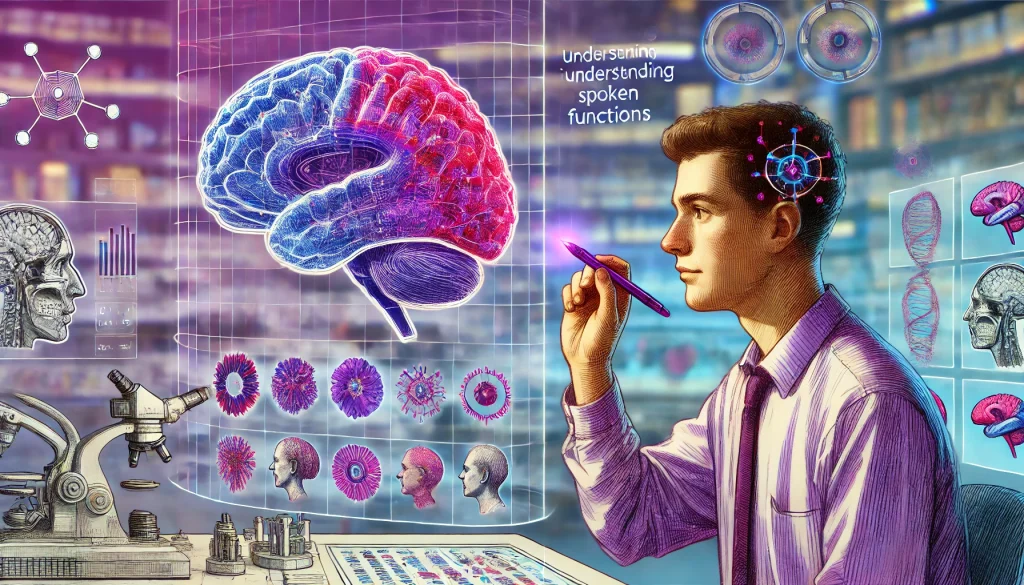Recent Study Sheds Light on Brain’s Language Processing
In a recent academic study, researchers have delved into the fascinating world of how our brains process language, shedding light on the intricate mechanisms that allow us to understand and produce speech. This study, published just this month, offers fresh insights into the cognitive processes behind language comprehension and production, and it stands out in the ever-evolving field of neuroeducation.
The study utilized advanced neuroimaging techniques to observe brain activity in participants as they engaged in various language tasks. By doing so, the researchers aimed to pinpoint the specific regions of the brain involved in different aspects of language processing. This approach aligns with the growing trend in neuroeducation, where teaching methods are increasingly informed by neuroscience principles.
One of the key findings of the study was the identification of distinct neural pathways for different language functions. For instance, the researchers found that while certain areas of the brain are activated during speech production, other regions are more involved in understanding spoken language. This discovery not only enhances our understanding of the brain’s language network but also has potential implications for developing targeted interventions for language disorders.
Interestingly, the study’s findings also highlight the brain’s remarkable ability to adapt and reorganize itself in response to language learning. This concept, known as neuroplasticity, suggests that with the right training and practice, individuals can improve their language skills by strengthening the neural connections involved in language processing. This aligns with the broader trend of microlearning, where educational content is broken down into small, manageable chunks to facilitate better retention and understanding.
However, the study is not without its limitations. As with many neuroimaging studies, the sample size was relatively small, which may limit the generalizability of the findings. Additionally, the study primarily focused on monolingual speakers, leaving open the question of how bilingual or multilingual individuals might process language differently. These limitations underscore the importance of replicating the study with larger and more diverse populations to validate the findings.
The recent surge in the use of AI in education also intersects with the implications of this study. AI tools, such as personalized tutoring systems, could potentially leverage these insights to provide more effective language learning experiences. By understanding the neural mechanisms behind language processing, AI systems can be designed to tailor lessons to individual learners’ strengths and weaknesses, thereby enhancing the overall learning experience.
Moreover, the study’s findings have broader implications for the field of education. For instance, educators can use this knowledge to develop more effective teaching strategies that align with the brain’s natural language processing pathways. This could involve incorporating more interactive and engaging activities that stimulate the relevant neural regions, thereby promoting better language acquisition and retention.
Despite these challenges, the field of neuroeducation continues to advance, driven by studies like the one discussed here. As researchers uncover more about the brain’s language processing capabilities, further innovations in educational practices and technologies can be expected. These advancements hold the promise of making language learning more accessible and effective for individuals of all ages and backgrounds.
In summary, this recent study offers valuable insights into the neural mechanisms behind language processing, highlighting the brain’s adaptability and the potential for targeted interventions. While there are limitations to consider, the findings contribute to the growing body of knowledge in neuroeducation and have practical implications for both educators and learners. As the intersection of neuroscience and education continues to be explored, the future of language learning looks brighter than ever.

